In order to attract travelers who are planning their next trip, travel companies and tour operators must have a strong web presence. Understanding search engine optimization (SEO) can help you become more visible, attract more visitors, and generate more reservations because search engines are an essential part of the trip planning process. Travel & Tours Digital Marketing offers tried-and-true SEO tips for tourism companies looking to increase their visibility and impact. These insights will help your business chart a successful course in the online environment.
Enhance Local Visibility
Optimize Your Google My Business Profile – Local search is a game-changer for travel services. Begin by establishing a complete Google My Business (GMB) profile. Include precise contact details, operating hours, and high-quality images that showcase your tours and excursions. Regular updates with posts, promotions, and customer feedback signal to search engines that your business is active and trustworthy.
Integrate Location-Specific Keywords – Incorporate area-specific keywords throughout your website and content. For example, if your focus is on guided tours in Rome, use phrases like “Rome guided tours,” “best travel packages in Rome,” or “local experiences Rome” within titles, headings, and text. This approach attracts travelers seeking specific local experiences and helps you rank higher in location-based searches.
Develop Local Content – Write articles and create landing pages that highlight nearby attractions, hidden gems, and unique itineraries. Posts such as “Top 10 Must-See Landmarks in Rome” or “A Local’s Guide to Authentic Experiences in Bali” not only boost keyword targeting but also position your agency as an authority on local travel. This content speaks directly to potential customers who value insider tips and genuine recommendations.
Focus on Mobile Optimization
Responsive Web Design – A smooth browsing experience on mobile devices is crucial since many travelers use smartphones and tablets for trip research. A responsive website adjusts seamlessly to different screen sizes, ensuring that visitors can navigate your offerings easily and enjoy fast load times. Prioritize a user-friendly interface that minimizes friction and keeps visitors engaged.
Improve Page Speed – Slow-loading pages frustrate users and may cause them to leave your site. Optimize your site by compressing images, streamlining code, and enabling browser caching. Tools like Google PageSpeed Insights can offer practical recommendations for speeding up your site, resulting in higher user satisfaction and lower bounce rates.
Craft Engaging & Inspiring Content
Create In-Depth Destination Guides – Content reigns supreme in the travel realm. Detailed destination guides and sample itineraries not only inform but also inspire potential clients. Develop extensive posts that incorporate long-tail keywords and provide practical advice. For instance, a blog titled “48 Hours in Paris: A Local’s Itinerary for Authentic Experiences” can captivate travelers and encourage them to book with you.
Utilize User-Generated Content – Encourage customers to share their travel experiences through reviews, photos, and videos on social platforms. Integrate this user-generated content (UGC) into your website to add authenticity and fresh, naturally occurring keywords. Highlighting genuine testimonials and travel stories helps build trust among prospective customers while refreshing your site’s content frequently.
Incorporate Visual Elements – Travel is inherently visual. High-quality photos, virtual tours, and engaging videos capture the essence of destinations and stir wanderlust. Optimize all visuals with descriptive alt tags and appropriate file names. Consider producing video content that offers a sneak peek into your tours. Not only does this enrich the visitor experience, but it also encourages users to spend more time on your site—a factor that search engines appreciate.
Master Technical SEO Essentials
Organize Your Site Structure – An organized website structure is vital for both user experience and search engine indexing. Use a clear URL hierarchy and create an intuitive navigation menu that guides visitors through your services and destination pages. Internal linking between related blog posts and service pages helps search engines understand the relationships among your content and boosts overall rankings.
Implement Schema Markup – Utilize structured data (schema markup) to help search engines interpret your content more effectively. For travel businesses, this can include local business schema, review schema, and event schema. Enhanced search results, such as rich snippets, provide additional information to users before they click, thereby increasing click-through rates and attracting more targeted traffic.
Conduct Regular SEO Audits – Search engine optimization is an ongoing effort. Use tools like Google Search Console, SEMrush, or Ahrefs to run frequent audits on your website. Identify and fix broken links, update outdated content, and resolve technical issues. Continuous improvement and routine monitoring are key to sustaining and boosting your site’s rankings over time.
Build Quality Backlinks and Strategic Partnerships
Form Local and Industry Connections – High-quality backlinks are crucial for improving your search rankings. Establish connections with local tourism boards, travel bloggers, and industry influencers to secure valuable links. Contributing guest posts on reputable travel sites or participating in local tourism events not only builds your backlink profile but also reinforces your position as an expert in the travel sector.
Collaborate with Influencers – Partnering with travel influencers can greatly extend your online reach. Influencers can create guest content, share personal travel experiences that feature your agency, or produce video interviews. Their established audiences and engaging posts drive traffic to your website while naturally enhancing your site’s authority through quality backlinking opportunities.
Measure Performance and Adapt Your Approach
Monitor Key Performance Metrics – Keep track of vital metrics such as organic traffic, bounce rate, dwell time, and conversion rates using Google Analytics and other SEO tools. Monitoring these key performance indicators (KPIs) reveals which strategies are effective and where adjustments are needed. Analyzing user behavior enables you to fine-tune your approach and continue improving your search rankings.
Stay Updated with SEO Trends – Search engine rules and user habits evolve constantly, so it is important to remain informed about the latest SEO trends and algorithm updates. Participate in industry discussions, follow reputable SEO blogs, and adjust your strategy as needed. Adapting your approach ensures that your travel business remains relevant and continues to attract prospective clients in an ever-changing online world.
Conclusion
Mapping success online requires a well-rounded SEO strategy specifically for travel businesses. By enhancing local visibility, focusing on mobile optimization, crafting inspiring content, mastering technical essentials, and building strategic partnerships, your travel agency can achieve higher search rankings and drive more bookings.At Travel & Tours Digital Marketing, we believe that search engine optimization is an ongoing journey of refinement and improvement. Regularly review your performance, embrace new trends, and be prepared to adjust your approach to meet the evolving needs of travelers. With these proven SEO secrets, your travel business is set to chart a successful course through the vast realm of online search. Happy optimizing!




















